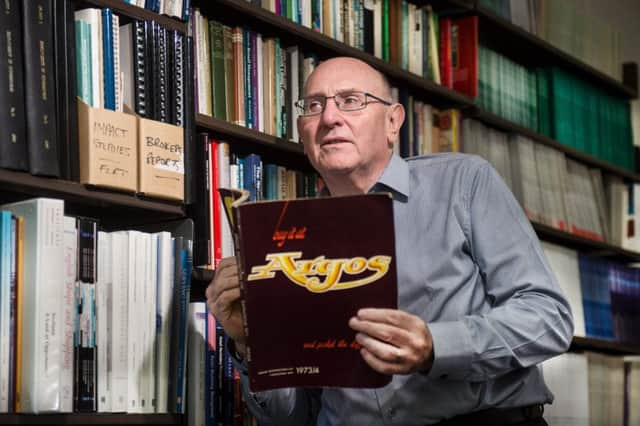Collection of Argos catalogues shows changes in buying habits


Now a professor has revealed that he is the owner of what is believed to be the UK’s only entire private collection of Argos catalogues – dating back more than 40 years.
Professor Leigh Sparks, head of the retail studies department at Stirling University, has every catalogue produced from 1973 to the present day.
Advertisement
Hide AdAdvertisement
Hide AdThe academic plans to write a book on the catalogues, which he said are a unique look at how products and buying habits have changed over the years.
He was approached a few years ago by a man who had been instructed by his wife to clear out their attic – and was about to put his collection of catalogues on a bonfire.
“It was serendipitous,” said Prof Sparks. “He had built up a collection over 25 years or so and contacted me because he had heard we had a retail studies department at Stirling. I was immediately intrigued.
“I first tried to find out if there was another collector in the UK and I am pretty sure that there is no-one else who has the full collection.”
The collection was not complete, so Prof Sparks began to source the missing catalogues, finding that some of the older editions were selling for well over £100 on eBay.
He said: “There are a piece of cultural and social history. If you look back to the editions from the early 1970s, you see what types of products we bought and the prices we paid for things.
“I asked the British Library if they have a collection and they do not – it surprised me, as they keep collections of things like certain football programmes. They are almost a nostalgic piece of memorabilia for some people.”
He added: “Argos catalogues, when they were at their peak, were the largest print run of a single publication that Europe had ever seen.”
Advertisement
Hide AdAdvertisement
Hide AdHe has written a small number of papers based on research from the catalogues, but said a book would be a “retirement project”.
“There is so much you can do with them,” he said. “One of the interesting aspects I have covered already, briefly, is sports marketing. When you look at the early catalogues, it is very much games equipment: wooden tennis racquets and cricket pads. Most are illustrated by pictures of men.
“Now, not only are there more photographs of females playing sport and female-oriented sports equipment, but there is also a lot more branded products, equipment that has the logo of a certain football team on it, for example.”
The only other complete collection of catalogues is held by Argos itself.
The chain earlier this year “quietly” removed catalogues from a small number of stores – including two in Inverness – to see if there was still demand for them from customers.
“I think it would be sad if they did that,” said Prof Sparks. “It says something about the switch to the internet.”
A spokesman for Argos said: “Since it first launched in 1973, the Argos catalogue has been a social barometer of the nation’s changing tastes, habits and interests. We’ve loved seeing our catalogues become collector’s items.”